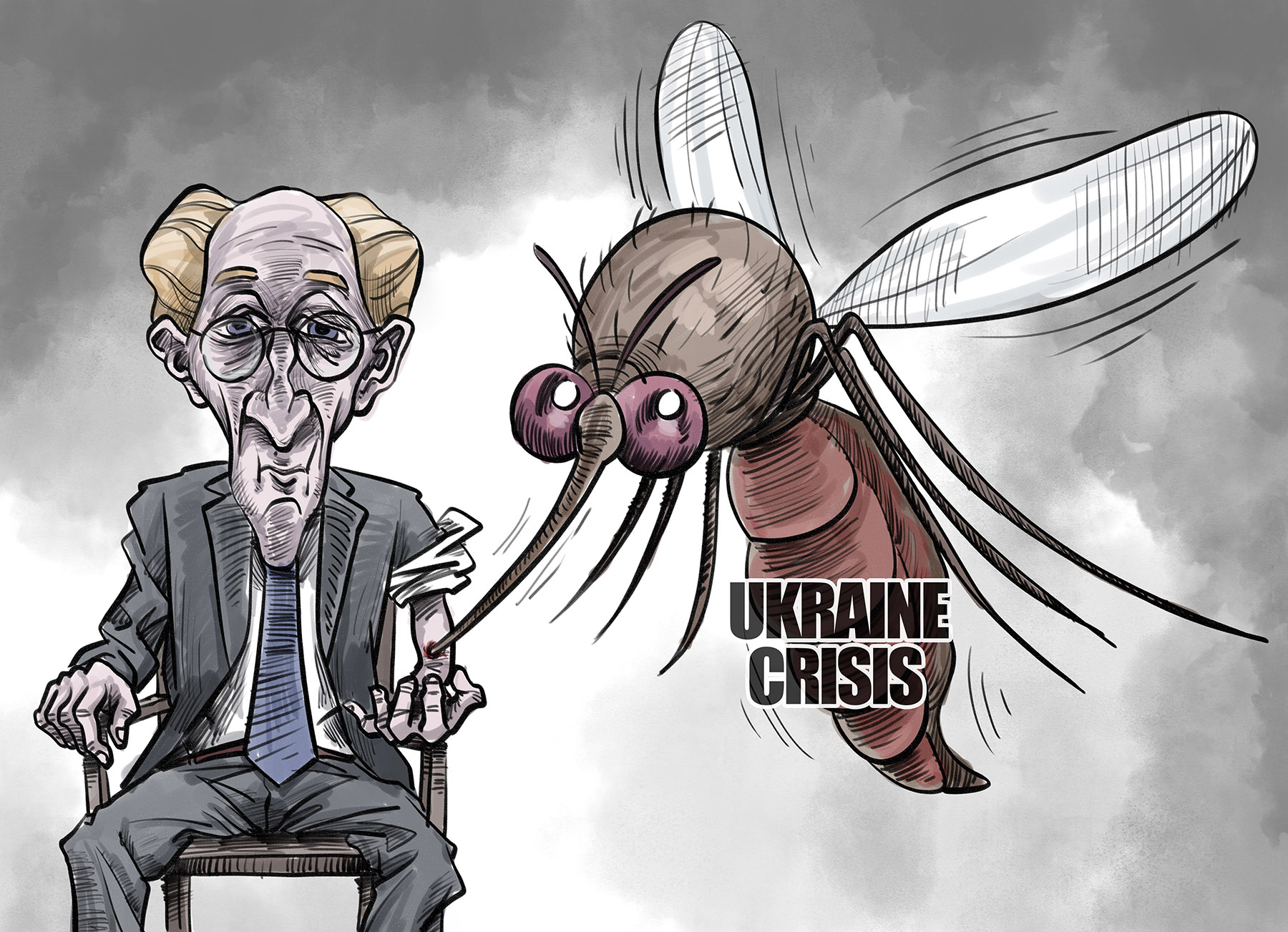
Less than a month into office, a seemingly confident US President Donald Trump sent his "A team" — Vice-President J.D. Vance, Secretary of State Marco Rubio and special envoy to Russia and Ukraine, retired Lieutenant General Keith Kellogg — to the annual Munich Security Conference, held from Friday to Sunday, to inform European allies of the new US administration's policies and pressure Russia into accepting Washington's new terms to end the Russia-Ukraine conflict.
In fact, Trump called Russian President Vladimir Putin on Wednesday, and said later that he had a "lengthy and highly productive phone call" with Putin, characterizing it as the beginning of a negotiation to end the Russia-Ukraine conflict. Trump has apparently told his advisers that finding US-backed process to end the conflict is a priority for his administration.
READ MORE: Wang: China to push for more just, reasonable international order
Although there has been no official response from Moscow, Russia is unlikely to give concessions to the US president to end the conflict nor will it settle the conflict on the US' terms.
Besides, his "America first" policy is causing chaos and consternation among the very same US allies that he takes for granted will blindly follow the US' lead on Ukraine as they have been doing for the past three years.
Indeed, Vance, Rubio and Kellogg are in for a set of nasty surprises as they collide with the new unyielding realities their own policies have created. Because the Russia-Ukraine conflict has already reshaped Europe's security mechanism and undermined, even wrecked, it in multiple ways.
The US-NATO policy — encouraged by the United Kingdom and Poland, and somewhat reluctantly supported by France, Germany, Spain and Italy — was to arm Ukraine to the teeth against Russia in the expectation that Ukraine would bleed the Russian army white and force Moscow to settle the conflict on the terms of the US and NATO, even leading to the overthrow of the Putin government.
But the opposite has happened. Ukraine's losses in the three years of the conflict have been horrendous. Instead of bleeding Russia white, Ukraine itself has been bled white. And while Russian arms production has expanded exponentially, the US and NATO have drained their arsenals dry in their vain attempts to prop up Ukraine.
NATO has been exposed as a "paper tiger", and it will take at least five years, if not more, for its major member states to restore their armaments and ammunition piles to the level they were in February 2022.
With the conflict going badly for Ukraine, the smaller NATO member states from Central and Eastern European have become far more dependent on the presence of NATO and US militaries. At the same time, the current leaderships in France and Germany have become increasingly fearful of Europe's descent into political disarray and an economic crisis.
Economic sanctions against Russia, too, have disastrously backfired on the European Union. They have cut off cheap and reliable gas supplies from Russia, dealing a big blow to the German economy.
Now, the new US administration has added to the uncertainties and fears in Europe in ways that had not been anticipated in London, Paris or Berlin.
On Wednesday, The Guardian said the US leader's suggestion that Denmark cede Greenland to the United States and the US absorb even Canada have changed the US' image among Europeans — from a protector of order and stability in Europe to an unpredictable and potentially aggressive force.
The Munich Security Conference report says that "the US may be abdicating its historic role as Europe's security guarantor — with significant consequences for Ukraine". The report goes on to say that "US foreign policy in the coming years will likely be shaped by Washington's bipolar contest with Beijing. This, however, may well accelerate the multipolarization of the international system".
ALSO READ: China a source of certainty in world of turbulence and transformation
The US leader's threat to bring Greenland, Canada and even Panama under US control has already prompted many European allies to see the US not as "an anchor of stability, but rather (as) a risk to be hedged against", the report warned. The report also said the US administration's new policies would, unwittingly, accelerate the development of a multipolar world order to replace the US-dominated one that was established in the early 1990s after the end of the Cold War.
Twenty-two years ago, when I covered the Munich Security Conference for United Press International, I was told by a senior European arms-control negotiator that there was widespread worry that the US was going to act like a "rogue cowboy" on the international stage.
To cite the famous French proverb, "Plus ça change, plus c'est la même chose." The more things change, the more they stay the same. However, the consequences will be far greater and more unpredictable this time.
The author is a senior fellow at the American University in Moscow.
The views don't necessarily represent those of China Daily.


